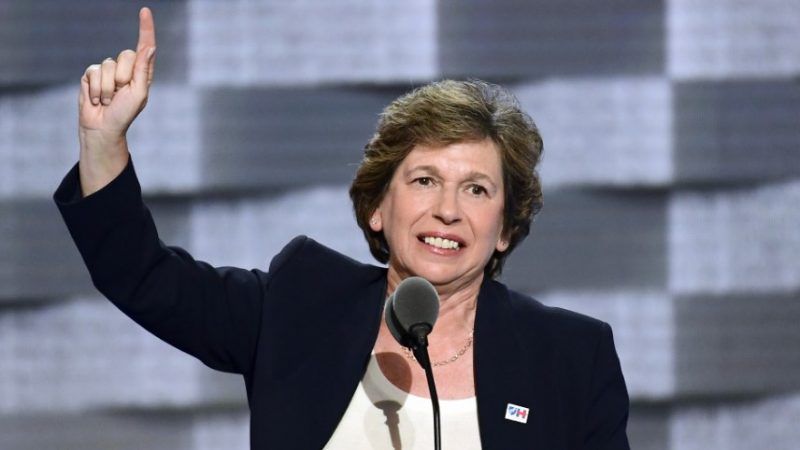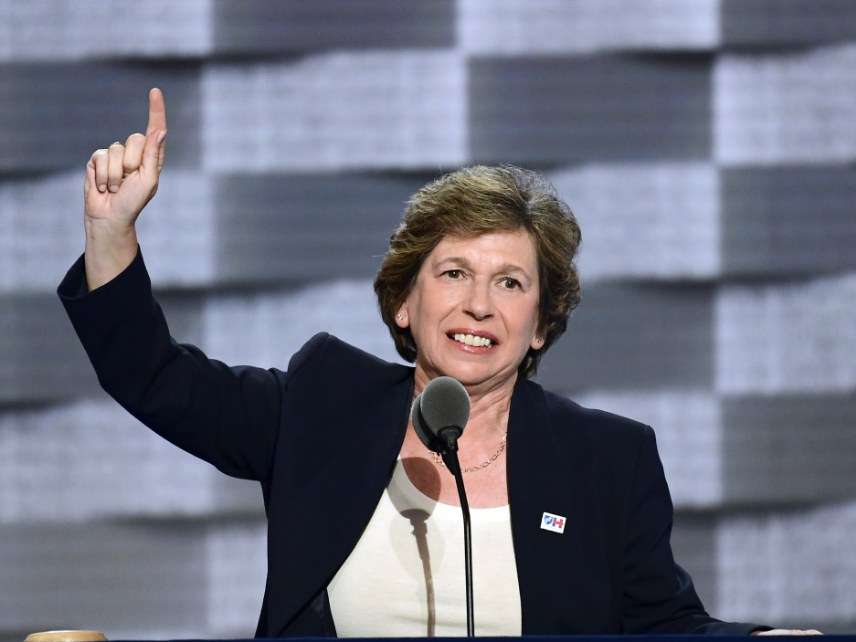Teachers Union President Thinks You're a Racist if You Yank Your Kids from Their Crappy Schools
Tell it to all the minority children in charter schools across the country.


Ethnically diverse Los Angeles boasts a population that's nearly half Latino, 10 percent Asian, and 10 percent African American. The metropolitan area is also the home of the largest charter school program in the country. In May, Los Angeles voters put school choice supporters in charge of the Los Angeles Unified School District board, a show of support for parents' right to decide where to send their kids for an education.
Demographic data across the United States show that charter schools are remarkably ethnically diverse. As of 2014, 27 percent of the charter school population was African American and 31 percent was Latino. These are parents who let the public school system know how they feel about the state of education by choosing to send their kids elsewhere.
So it may seem absurd to try to paint school choice as a racist construct. Yet here we are: In what seems like an awfully desperate attempt to rally the public school establishment, American Federation of Teachers President Randi Weingarten is attacking the school system's own customers. In a speech before the union, she dismissed school choice as a tool for racist parents to avoid desegregation:
After the Brown decision, many school districts, especially in the South, resisted integration. In Virginia, white officials in Prince Edward County closed every public school in the district rather than have white and black children go to school together. They opened private schools where only white parents could choose to send their children. And they did it using public money.
By 1963, African American students had been locked out of Prince Edward County public schools for five years. AFT members sent funds and school supplies. And some traveled from New York and Philadelphia to set up schools for African American students in church basements and public parks, so these students could have an education.
And what about the schools Betsy DeVos appallingly called "pioneers of school choice"—historically black colleges and universities? HBCUs actually arose from the discriminatory practices that denied black students access to higher education. HBCUs are vital institutions, but that doesn't change the truth of their origins: They were born of a shameful lack of educational choices for African American students.
So, let me see if I understand this properly: Racist government officials shut down access to schools, and as a result black children had fewer choices for eductation, she argues. Black colleges arose as a way of giving educational choices to black students they might not have had otherwise.
So the problem here is private school choice? This was clearly a result of government officials being able to control which schools students were able to attend! In Weingarten's upside-down world, public schools need to be protected from choice, even though historically alternatives to government-run education systems actually helped minorities get access.
Well, it's a good thing public schools have gotten rid of their segregation, right? Except they haven't. If anything, public schools are becoming more and more segregated, according to a Government Accountability Office study last year. And with school choice options, more poor and minority students are opting to leave, rendering them even less diverse.
Let's not mince words: School choice is a boon for poor and minority students, giving them more possibilities that wealthy whites take for granted. It also represents a threat to the interests of Weingarten and the AFT, who have a significant financial stake in protecting their monopoly. Despite the tremendous power, finances, and political influence of education unions, she presented the school choice fight as an actual "David vs. Goliath" scenario where she and the AFT are "David."
In 2016, AFT spent $20 million in contributions to political races, $7.3 million on outside political spending, and $1.3 million on lobbying. Open Secrets ranked them 21st out of more than 18,500 political donors.
But there's something even more telling in that Weingarten sees the AFT as the "David" vs. the "Goliath" of privatization interests: She inadvertently acknowledges that it's a battle for control over the system itself and leaves the parents completely out of it.
It's the parents who are the "Davids" in this half-baked metaphor. They're the ones who are fighting a massive system designed to thwart their desires in favor of those who control it (the very people Weingarten represents).
The AFT is fighting a losing battle, and they know it. Parents, the actual customers of the education system, are desperately looking to take their money and business elsewhere. They're even suing school districts to try to turn their public schools into charters. School choice advocates can very easily trot out any number of students who have benefited from leaving the public school system—and they're not all rich, white kids.
Black students in charter schools have been shown to outperform their public school counterparts. Voucher schools took a hit recently due to reports that students underperform, but a longer view suggests that, over time, these students recover and even score better than public school counterparts in some areas.
Establishment representatives like Weingarten simply cannot acknowledge that they're the villains of this story, and that they've chosen to cling to control of a system that benefits government employees over the needs of the parents and students. Don't try to convince the public that you care about the fate of poor and minority public school students when teachers' union contracts keep schools in those very communities from getting rid of bad educators.


Show Comments (85)